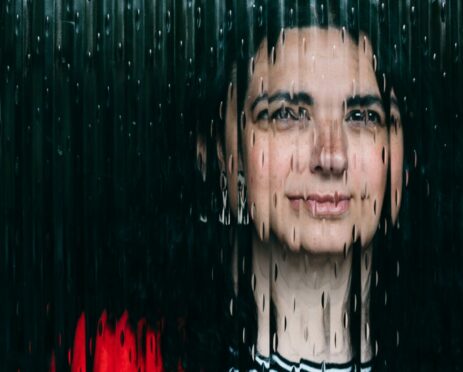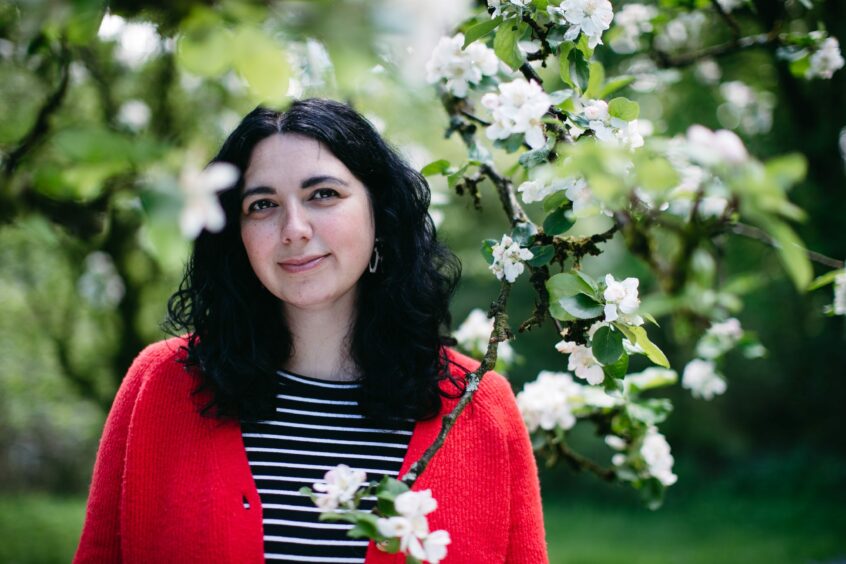
For Rachelle Atalla, the metallic thud of the heavy steel doors slamming shut behind her, hundreds of feet beneath the streets of Berlin, was the sound of sweet inspiration.
Then working as a community pharmacist, Atalla was on holiday with her husband and young son when they were given the chance to explore one of the city’s subterranean shelters, a vast network of bunkers built during the Second World War and repurposed for the Cold War.
Stepping inside, between the steel beds and cramped living quarters, the bleakness, Atalla says, sparked her mind into overdrive.
“It’s funny when I look back now because it was a moment that was going to change my life, but I didn’t really know it,” explained the 36-year-old. “The guide took us down four flights of stairs, past an underground car park and, before we knew it, we were at this big metal door. They turned the handle and we walked into a community-sized, post-war nuclear bunker that could house thousands of people.
“Immediately I just thought about all the societal questions that would arise – the types of people that would be selected to go to the bunker, how the hierarchy would work, and how people would survive. I grew quite consumed by it all.
“When I got home, I didn’t write about it straightaway, but when I did start writing, I couldn’t stop. At that point, I thought, ‘OK, this is going to be the novel’.”
The resulting story, The Pharmacist, is a post-apocalyptic thriller that follows the eponymous protagonist Wolfe as she doles out medicine to fellow survivors under the watchful eye of their increasingly erratic and paranoid leader.
Exploring themes of power, control, survival and class structure, Atalla admits she wanted the book’s setting to work as a microcosm of society, and took further inspiration from real-world politics. The bunker’s ruler, ND, for example, was loosely based on former US president, Donald Trump.
She explained: “Someone said to me, ‘You should always be writing about the things that scare you, the things that keep you up at night’.
“I am a worrier, you know, I do lie in bed at night, having just read an article in a newspaper, thinking, ‘What’s going to happen in the world?’.
“When I was writing the book towards the end of 2017, Trump was in power and, at the time, there were mass protests outside the White House. He would get a bit scared and go into his bunker, and I remember thinking, ‘That’s just so typical’.
“I always felt like if nuclear war was to happen, the leaders would never pay – they always end up in the bunker with their select chosen ones. Joe Bloggs is just abandoned.
“That theme of the self-serving, narcissistic leader just felt really relevant then and it’s just as relevant now.”
Although written pre-pandemic – initially as a hobby in her spare time – Atalla says lockdown has further highlighted the unfair divide that exists in today’s society, as well as her fictional bunker.
“People in power almost don’t want you to think about someone’s worth because, when you do, you go, ‘Oh, hang on a minute, is that fair?’,” continued the writer, who lives in Glasgow with her husband and two children, now aged six and three.
“Take the parties that were happening down in Westminster when everyone else was suffering. The politicians try to pacify people and tell them to move on, but they just don’t understand because everybody else sacrificed and they didn’t sacrifice anything. That’s the same in the bunker, and so much of the hierarchy that we have in life.
“The saddest thing is that history can repeat itself. Particularly in the pandemic with NHS workers, frontline workers and supermarket staff, anyone that had to be there, putting themselves at risk, they are very quickly forgotten again. I just felt like it was worth highlighting that this is a cyclical thing. It happens all the time.”
Currently in the process of finalising her second novel, Livestock, due to be published next year, Atalla has also found success writing for the small screen. Her first short film screenplay, Trifle, another story about a pharmacist, was commissioned by the Scottish Film & Talent Network, and she is now developing a feature length screenplay with the BBC and Young Films, the Skye-based production company behind The Inbetweeners.
So, could we see The Pharmacist on television any time soon?
“Obviously that would be the dream, wouldn’t it?” she replied with a laugh. “I haven’t got any plans at the moment, but my agent has started sending it out to production companies. He’s pitched it as a TV mini series, which is how I imagine it as well. I would love to write on it.
“We’ll just have to wait and see and take each opportunity as it comes.”

Enjoy the convenience of having The Sunday Post delivered as a digital ePaper straight to your smartphone, tablet or computer.
Subscribe for only £5.49 a month and enjoy all the benefits of the printed paper as a digital replica.
Subscribe